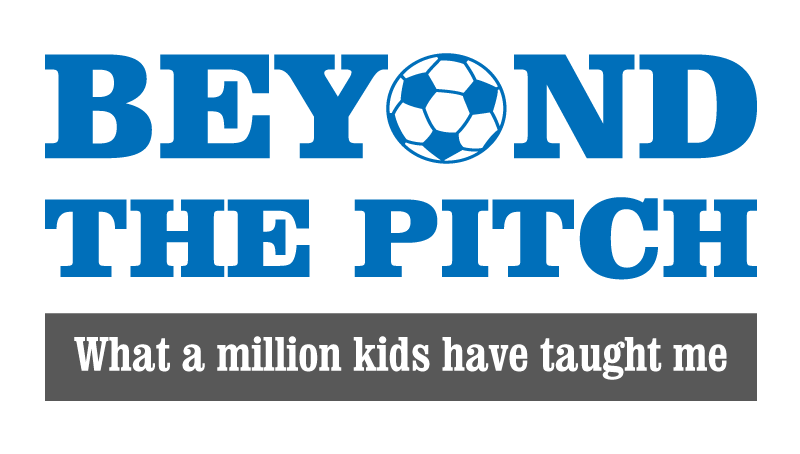
© mizina / Adobe Stock
Baffled By Your Child’s Reaction? Understanding Their Temperament Can Help
January 27, 2021
Most of us realize we come wired with unique ways of looking at and interacting with the world. But, have you ever really thought about how your child’s temperament plays into their everyday responses to their environment and those in it? We can’t change who they are (nor should we try), but we can nurture their natural way of being, support their understanding and development of inherent traits, and teach skills to help manage situations that may otherwise be overwhelming.
Temperament relates to how we engage, how we react to things, our ability to self-regulate, and how we are in social situations. While there are many schools of thought on defining temperament, perhaps it’s easiest to simply characterize it as being more or less. More or less reactive, more or less regulated, more or less social. Measurements that slide along a continuum are easy to remember, visualize, and are relative to the individual. Plus, they remind us that behavior isn’t static—it varies with the comfort level of our circumstances and evolves with maturity and skill development.
New situations, transitions, bedtime, conflict, and playdates are areas where temperament can be put to the test and result in challenging or even mystifying behavior. But, when we look at those situations from the context of a child’s temperament things can become more clear and easier to manage. Parenting strategies may also be more effective because we are gearing our responses and guidance toward the root of what’s going on rather than simply trying to mitigate unwanted behavior. Doing so helps kids develop coping skills and empowers them to embrace who they are, rather than punish them for actions that are usually influenced by something innate and spurred on by circumstance.
“Parenting strategies may also be more effective because we are gearing our responses and guidance toward the root of what’s going on rather than simply trying to mitigate unwanted behavior.”
Some temperaments are easier to parent than others—especially when they match our own or fit well with the family dynamic. When a child has a temperament that isn’t like ours it can be puzzling and try our patience. Understanding our kids from a temperamental perspective can alleviate some of that frustration because it allows us to really know our kids; to understand and embrace who they are and be their biggest supporters.
While there are many temperaments to consider let’s scratch the surface and look at a few that may be the most influential on daily behavior.
More Reactive
Often exuberant when excited and angry when frustrated, these kids wear their emotions on their sleeves. They are quick to respond to things and are often very physically active. While fun and engaging, they can get quite angry or sad, or frustrated when others hurt their feelings or things seem unfair. They can also hold grudges or may not like change. Sometimes their behavior might get them into trouble. The good thing is you’ll definitely know how they’re feeling!
Those who are highly reactive may need more outlets for their energy, including more physical activity and time to play outside. They may need coaching for problem-solving with friends and dealing with their feelings. They may need help with transitioning from one activity to another and with winding down at bedtime. Deep breaths, bedtime rituals, and teaching them to name and process their emotions rather than act out because of them can help.
Less Reactive
Those who are less reactive are just that, less reactive. They may show the same level of emotion whether you are going to Disneyland or putting them in a time out. They are usually pretty easy going and are often happy just hanging out. At times they may seem a bit disinterested. These kiddos tend to be less assertive so they may not stand up for themselves. They also may get overlooked by friends, teachers, and family. They typically have good fine motor skills and are content to just hang out using them.
It is important to make sure that the child who is less reactive is seen and acknowledged. Even though it might not seem like it matters to them, it does. Help them engage in conversations and assert themselves in decision-making opportunities or conflict situations. You also may need to prod them to be physically active as they are not necessarily prone to be.
More Regulated
The more regulated child will be less impulsive and can manage the highs and lows of their emotions a little more readily. They also may have a stronger ability to stick with a task or focus. However, they may lean toward perfectionism. This can cause them to spend an inordinate amount of time on something and have unrealistic expectations about the outcome of their effort. Reinforcing it is OK to make mistakes will be important in parenting these kiddos. Teaching a little spontaneity might help, too.
Less Regulated
Flexibility is one highlight of children who are less regulated because they can quickly (and willingly) switch gears. However, they may need more time to process and deal with their emotions and have trouble focusing their attention. The good news is that they can be very creative so adding a creative element into their activities and your parenting style will probably help them to stay focused.
More Social
These social butterflies thrive in groups, are typically very adaptable, and can go with the flow when it comes to embracing change. They also love new experiences. The downside is they may be a little surly when bored or if they don’t get enough time to interact with others, and they may have a proverbial foot out the door when it comes to having family time or downtime.
While they may balk at the idea of playing alone, it’s important for them to do so as it helps them learn to take initiative and builds creativity. Being mindful to carve out plenty of one-on-one time together is also vital to your relationship.
Less Social
Less social children are often creative, very good at playing by themselves and finding things to do, but they may need help making friends and engaging in large social or school gatherings. You may need to help them create relationships as well as gear your activities to smaller numbers so they can build their social skills and not be overwhelmed in the process. Once their comfort level increases, chances are they will be able to engage in larger groups, especially with familiar people.
Less social children might also be less adaptable. Many prefer a regular routine and have difficulty coping with changes and disruptions. We can’t always plan things around their preferred schedule so it will be important to help them build coping strategies for changes and transitions.
Keep in mind, holidays or other busy times that require them to “be on” might be hard. The anticipation can cause angst. The activities can be physically and emotionally taxing requiring some downtime afterward to recharge their social battery. Try talking through any upcoming events to allow them to set expectations and then create a plan for some much-needed quiet time to help them cope.
Wherever your child lands on the temperamental spectrum is just simply a matter of how they are wired. It’s their natural way of being, and it’s okay. Yes, parenting is difficult at times. Yes, we can feel overwhelmed. And yes, we can also feel disconnected if our child’s way of being is different than our own. All we can do is embrace them for who they are, try to understand their way of looking at the world, help them develop skills to be successful in their relationships, and love them through the ups and downs of navigating the world of growing up. We’ll just need patience. Lots and lots of patience.
Be kind to yourselves and others.
Until next time,

Recent Posts
Revive From Burnout
It’s been a while since I’ve written. Finding the time and my voice has been a bit challenging. And honestly I’ve been pretty burned out. Here are three things I’ve done to get back on track and revved up for a new year. Read more.
Tips for Back-to-School 2021
Are you wondering how to manage the back-to-school process this year? Emotions about returning to school may be running a little high. Read on to discover some tips for coping. A little pre-planning will go a long way. Read more.
Behavior on the Slide? Learn the Signs of Stress in Your Child
A child’s behavior can reveal a lot about how they’re feeling. Check out how you can help your child learn to understand and manage their emotions in healthy ways. Read more.





